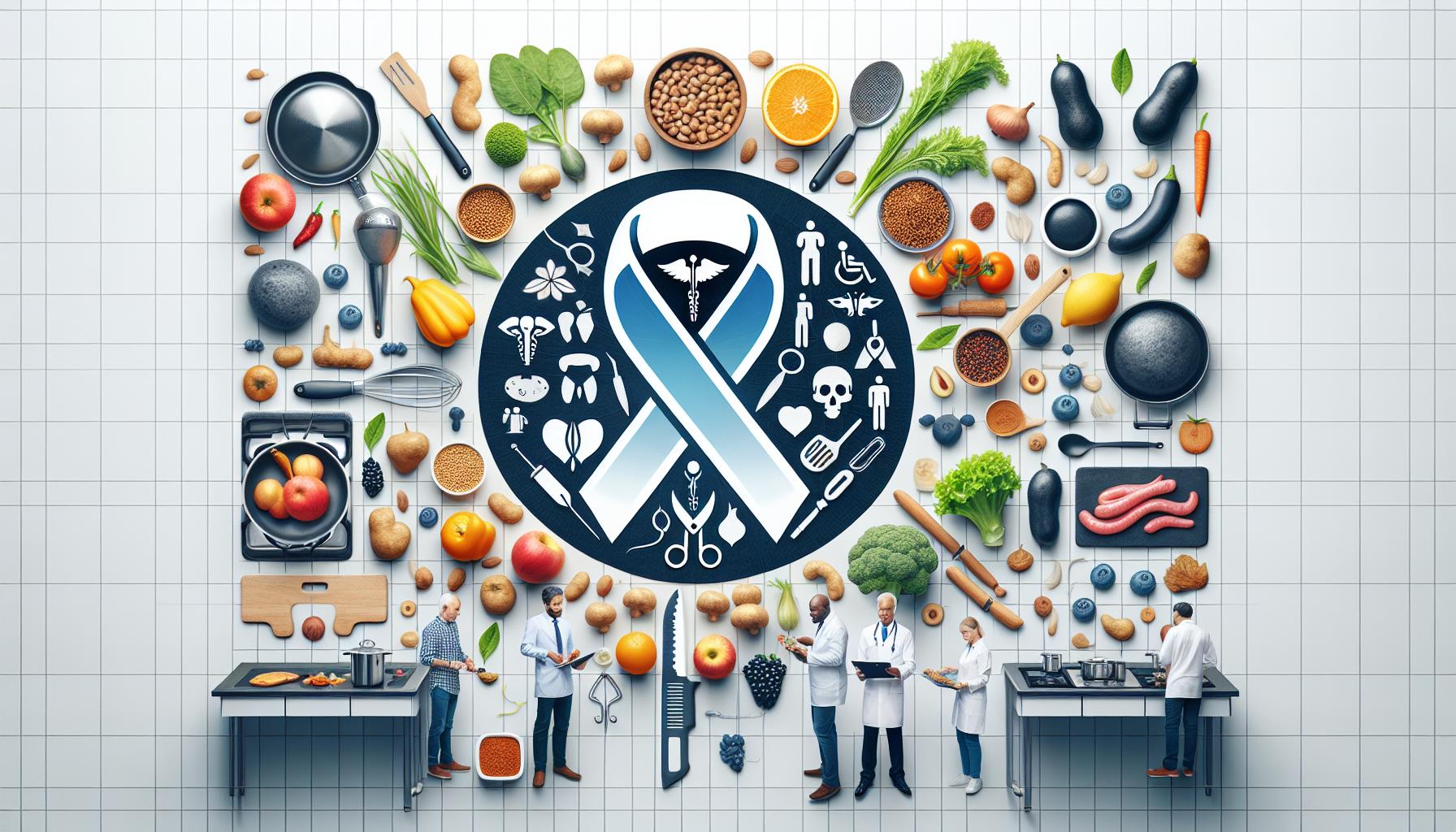Introduction
So, you’re keen to know more about a prostate cancer food guide, or in other words, foods for a healthier prostate? Let’s dive straight into the answer. Consumption of a well-balanced diet that is rich in fruits, vegetables, and lean sources of protein can help maintain the health of your prostate and potentially deter the onset of prostate cancer. This article will provide an in-depth look at the role played by nutrition in prostate health. We’ll be discussing key food items, dietary habits, and also dispel some myths along with answering popular queries related to prostate health in our FAQ section.
Foods for a Healthy Prostate
To eat smart is to understand the significance of various food groups and how they contribute to prostate health. Fruits and vegetables, packed with antioxidants and anti-inflammatory properties, play a crucial role in warding off various types of cancers, including prostate cancer. Leafy greens, like spinach and lettuce, berries, like strawberries and raspberries, and other fruits, such as pomegranates and apples, should become a part of your daily diet.
The Power of Protein
Apart from fruits and vegetables, lean sources of protein like fish, poultry, and beans are critical for prostate health. They contain essential nutrients and are devoid of saturated fat which often contributes to prostate complications.
Cutting Down on Red and Processed Meat and Dairy
While we emphasize the importance of protein, it is necessary to mention that not all proteins are created equal. Red and processed meats and dairy products are high in saturated fat and potentially harmful compounds, which have been linked to an increased risk of prostate cancer. Swapping steak for fish or chicken, and choosing plant-based alternatives over dairy, can go a long way.
The Good Fats
Don’t get confused – not all fats are bad for your health. Omega-3 fatty acids, found in fish like salmon and mackerel, and in flaxseeds and chia seeds, can help keep your prostate healthy and reduce inflammation.
Foods to Avoid for Prostate Health
Certain food habits or specific foods might be doing more harm than good for your prostate. Alcohol, caffeine, spicy foods, artificial sweeteners, and foods high in salt are some common perpetrators for an unhealthy prostate. Cutting back on these can aid in overall better prostate health.
Understanding the Role of Supplements
While diet plays a pivotal part in prostate health, sometimes we need a helping hand. Some supplements like vitamin D, selenium, and lycopene have been linked with prostate health. But remember, these should ideally complement a healthy diet, not replace it.
Conclusion
Navigating the terrain of dietary habits for a healthier prostate might seem complicated initially, but it boils down to simple principles – incorporate a plethora of fruits and vegetables, lean proteins, and healthy fats in your diet, and reduce consumption of red and processed meats, dairy, and harmful foods. And remember, supplements can be considered as a support system, not as a standalone solution.
Frequently Asked Questions
1. Is coffee bad for my prostate?
While excessive consumption of caffeine can be harmful, moderate consumption is not directly linked to problems with prostate health.
2. Can prostate health be improved with lifestyle changes?
Yes, a well-balanced diet, regular exercise, maintaining a healthy weight, and cutting back on alcohol can significantly improve prostate health.
3. Do spicy foods affect the prostate?
While spicy food does not directly affect the prostate, it can aggravate symptoms if you have an inflamed prostate or prostate cancer.
4. What are some symptoms of bad prostate health?
Frequent urination, particularly at night, difficulty starting and stopping urination, painful urination, and blood in urine or semen can signal prostate problems. If you experience any of these symptoms, it’s best to see a doctor.
5. Are there certain foods that can lower the risk of prostate cancer?
While no food can eliminate the risk entirely, a diet rich in fruits, vegetables, lean proteins, and healthy fats can help reduce the risk of prostate cancer.


